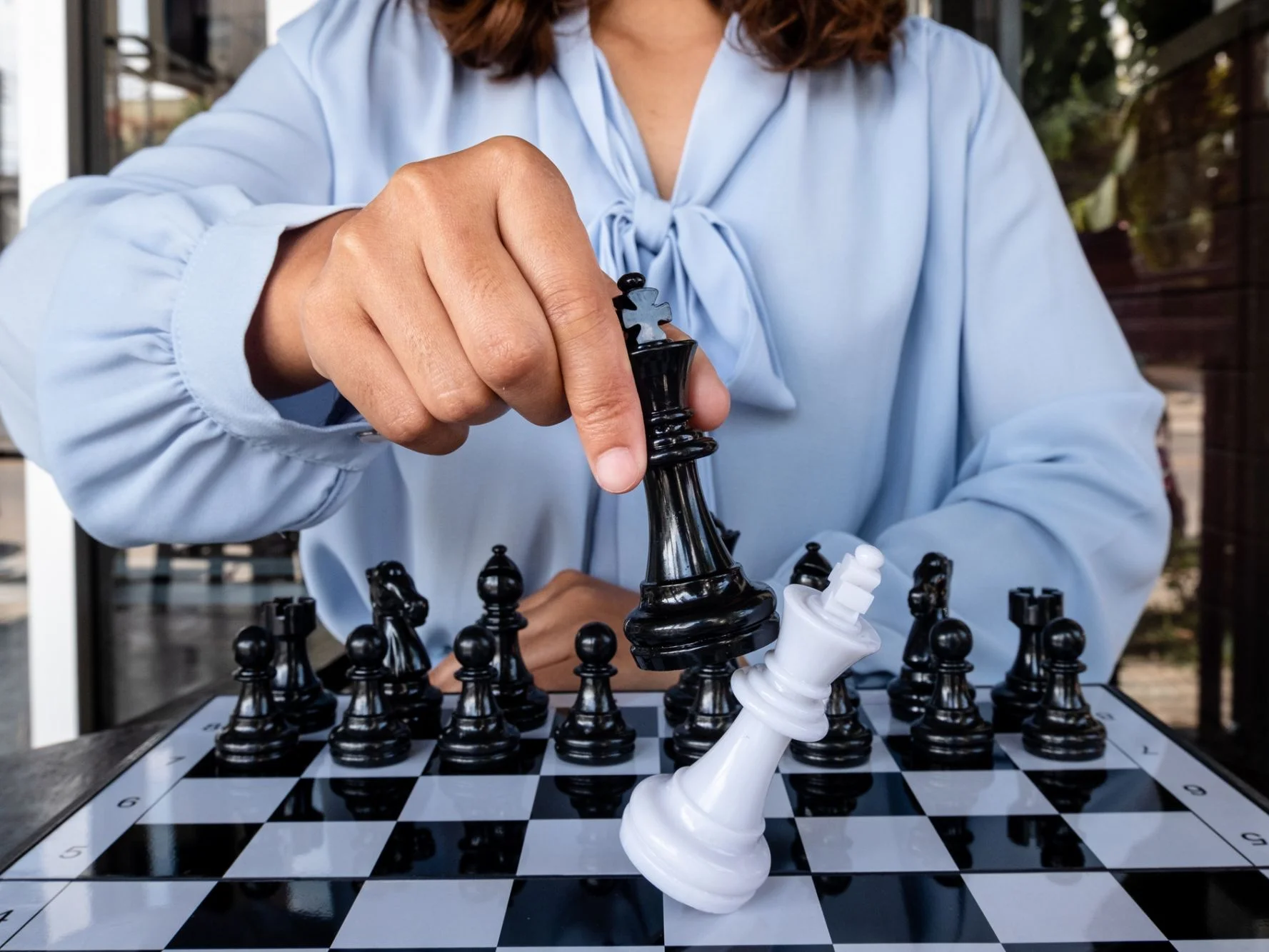Chess is more than just a game; it’s a battle of the mind that teaches strategic thinking, problem-solving, and patience. The skills developed through chess can be applied to real-life situations, helping individuals navigate challenges, make better decisions, and improve overall cognitive abilities. Whether you are learning at a Chess Academy, attending a Chess School, or undergoing professional Chess Training, the strategies you develop on the board can be invaluable in daily life.
From planning ahead like a Chess Champion to setting up a strong foundation like an effective chess setup, chess principles can guide us in business, relationships, and personal development. In this article, we’ll explore how key chess strategies can be applied to real-world scenarios for success.
Strategic Thinking: Planning Ahead Like a Chess Champion
In chess, every move should be planned with foresight, considering both immediate consequences and long-term goals. A Chess Champion doesn’t play impulsively but anticipates their opponent’s moves, preparing multiple strategies to gain an advantage.
Similarly, in life, whether it’s career planning, financial management, or business decisions, thinking ahead is crucial. Successful individuals analyze possible outcomes, adapt to changes, and make informed choices, just like a skilled chess player predicting an opponent’s tactics. Attending a Chess Academy helps players develop this strategic mindset, which translates into better decision-making in real life.
Problem-Solving: Learning from Chess Training


Every chess game presents unique problems that require quick thinking and creative solutions. Chess Training helps players develop problem-solving skills by analyzing different board positions and coming up with the best possible moves.
In real life, problem-solving is essential in overcoming obstacles, whether it’s handling workplace challenges, resolving conflicts, or managing personal setbacks. By applying the logical reasoning learned from chess, individuals can break down problems into manageable parts and find effective solutions. A Chess School fosters this ability, training students to evaluate situations critically before making a decision.
Adaptability: Adjusting Strategies Based on the Chess Setup
No two chess games are the same, and players must adapt to different openings, defenses, and tactics based on the chess setup. A strong opening might give a player an early advantage, but the ability to adjust to unexpected moves is equally important.
In life, circumstances constantly change, and adaptability is key to success. Whether it’s switching careers, dealing with market fluctuations, or handling unexpected challenges, being flexible and responsive ensures long-term progress. Chess Training instills this adaptability, teaching players to remain calm under pressure and find alternative paths to victory.
Patience and Discipline: The Key to Mastering Chess and Life
Winning in chess requires patience, discipline, and a long-term strategy. A Chess Champion doesn’t rush into moves but carefully calculates each step, waiting for the right opportunity to strike.
In life, patience is a virtue, whether it’s pursuing long-term goals, building relationships, or achieving success in a chosen field. Learning chess at a Chess School helps instill discipline and focus, essential qualities for maintaining consistency and perseverance in real-world endeavors.
Risk Management: Knowing When to Attack and When to Defend
Chess players must constantly assess risks, deciding whether to sacrifice a piece for a greater advantage or play defensively to avoid blunders. A well-thought-out risk strategy separates an amateur from a Chess Champion.
In business, investment, and daily life, managing risks wisely leads to better outcomes. Understanding when to take calculated risks and when to play it safe is crucial for success. Chess Training enhances this ability, teaching individuals how to weigh their options carefully and make sound decisions.
Leadership and Decision-Making: The Role of a Chess Champion
A great chess player leads the game, controlling the board and influencing the opponent’s moves. They take charge, set the pace, and execute well-planned strategies to secure victory.
In real life, leadership requires similar skills—confidence, strategic thinking, and the ability to make decisive choices. Whether managing a team, running a business, or making personal life decisions, strong leadership qualities learned through Chess Training can make a significant impact. A Chess Academy nurtures future leaders by developing their ability to think critically and act with confidence.
Perseverance: Learning from Defeats and Comebacks
Even the best Chess Champions experience losses, but they use defeats as learning opportunities. Instead of giving up, they analyze their mistakes, improve their strategies, and return stronger.
Life is full of setbacks, but resilience is the key to success. Whether facing failures in exams, careers, or personal goals, learning from mistakes and continuing to improve leads to ultimate achievement. At a Chess School, students develop perseverance, understanding that each loss is a stepping stone toward mastery.
Conclusion
Chess is more than a game—it’s a reflection of life’s challenges, requiring strategic thinking, patience, adaptability, and perseverance. The lessons learned through Chess Training at a Chess Academy or Chess School help players develop skills that are valuable in real-world situations. Whether you aspire to be a Chess Champion or simply want to improve your cognitive abilities, applying chess strategies to daily life can lead to smarter decisions, stronger leadership, and long-term success.
By incorporating chess principles like planning, risk management, and adaptability, you can navigate life’s complexities with confidence. So, the next time you make a move—on or off the chessboard—remember that every decision shapes your path, just like in a well-played game of chess.

Recent Comments